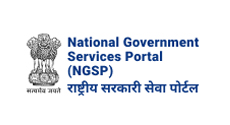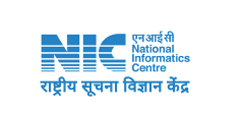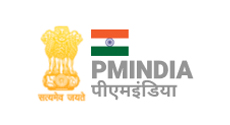Greetings from ICAR-National Institute for Plant Biotechnology. Our Institute evolved from the Biotechnology Centre (BTC) established within Indian Agricultural Research Institute, New Delhi, under ageis of Indian Council of Agricultural Research, Ministry of Agriculture and Farmers Welfare, Govt of India in 1985 with a vision to achieve leadership in Plant Biotechnology research and education in India. With initial contribution in addressing biotechnological advancement in thrust areas of Indian agriculture, it rose to the level of an independent status of “National Research Centre on Plant Biotechnology (NRCPB)” in 1993. It’s outstanding and significant contribution at global level led to its elevation to a national institute, “National Institute for Plant Biotechnology (ICAR-NIPB)”, in 2019. The mandates of ICAR-NIPB includes (i) Basic plant molecular biology research for understanding molecular basis of biological processes and (ii) Coordination and capacity building for devising tools and techniques of biotechnology and genetic engineering for crop improvement. The institute also has MSc and PhD programmes to generate next generation researchers in the field of Molecular Biology and Biotechnology. In addition to the research, the talented scientists and students of the Institute spend substantial part of their time with farmers, to increase their income through various programmes like MGMG and SCSP as a mandatory social obligation. Several path-breaking contributions in the past and present have brought this Institute to the fore-front of Plant Biotechnology Research of the country. ICAR-NIPB has delivered popular mustard varieties, Pusa Gold and Pusa Jai Kisan, two of the top three mustard varieties released by the ICAR to date. Further, NIPB successfully collaborated with IARI in the release of marker-assisted selection (MAS)-derived rice variety, Improved Pusa Basmati-1 conferring resistance to bacterial leaf blight. Moricandia based cytoplasmic male sterility (CMS) system was another success story which led to commercial release of mustard hybrids NRC Sankar Sarson by DRMR Bharatpur and Coral 432 by Advanta, India. The Institute decoded rice, wheat, tomato and flax/linseed genomes through international partnership and subsequently completed pigeonpea genome sequencing with completely indigenous efforts, the first eukaryotic genome to be sequenced in India. This was followed by jute, mango, tea, Oryza coarctata, guar, Puccinia triticina and M. ciceri genomes entirely with Indian collaborations. Development of transgenic crops resistant to biotic and abiotic stresses has been a major thrust area of the Institute. A Bt gene encoding Cry1F insecticidal protein has been introduced in brinjal variety ‘Pusa Purple Long’ and the event was shared with public and private sector seed companies for biosafety evaluation, field testing and commercialization. The transgenic lines of this event are under pre-commercialization stage undergoing biosafety testing. Further, the institute has also identified pi54, the blast tolarent gene which has been deployed in number of popular variety of rice in India and abroad. In order to maintain the continuum, NIPB envisioned initiating research on new frontier area of plant biotechnology to harness nutri-genomics potential of important crop species employing cutting-edge technology such as genome-editing, epigenomics etc. Genes, deciphering their functions and unravelling metabolic pathways will be on priority list of the Institute.
The Institute has created state of the art facilities for genome sequencing, transgenic development, high throughput genotyping using SNP arrays, proteomics and bioinformatics for gene discovery and allele mining. A large number of QTLs, trait-linked DNA markers, and candidate genes have been identified. Some of these have been patented for commercial exploitation. Besides these, the institute has also contributed immensely by generating validated genomic resources for biotic and abiotic stress tolerance in rice, sugarcane, chickpea, pigeonpea, jute, flax and mango in collaboration with the crop based ICAR Institutes and SNP chips of rice, pigoenpea and mango.These serve as valuable resources for varietal improvement programmes.
Apart from contributing in research arena, NIPB is playing cardinal role in developing human resources at national as well international level since its inception. So far, 131 M.Sc. and 104 Ph.D. students have obtained their degrees in the Molecular Biology and Biotechnology in association with PG School, IARI, New Delhi. Besides, the institute is conducting national and international training programmes as well as dissertation-training for students of different universities. It has also been recognised as Centre for advanced Study for Faculty training in advance area of biotechnology.
For the reason of leadership and contribution at national and international level, NIPB has earned ICAR-Sardar Patel Outstanding Institution Award for 2011-12 and Mahindra Samriddhi Krishi Sansthan Samman in 2012. The fellowships of prestigious national science academies, viz., IASc, INSA, NASc and NAAS have brought laurels to the Centre.
(Dr. Ramcharan Bhattacharya)






